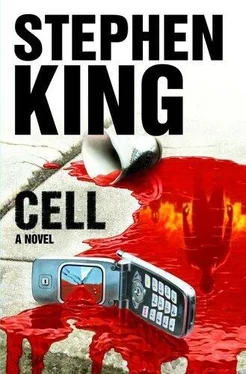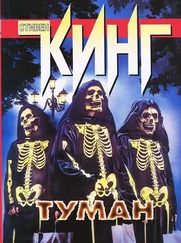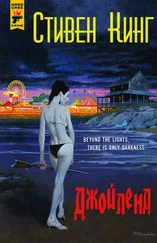Halfway through the arch he paused and glanced back, holding the Coleman lantern high, looking at the bodies. Pulling down the skirt of the woman's jumper hadn't helped much. They were still just corpses, their wounds as naked as Noah when his son had come upon him in liquor. He could find something to cover them with, but once he started covering bodies, where would it end? Where? With Sharon? With his son?
"God forbid," he whispered, but he doubted that God would simply because he asked. He lowered the lantern and followed the dancing glow of flashlights downstairs to Tom and Alice.
21
They both wore belts with large-caliber handguns in the holsters, and these were automatics. Tom had also slung an ammunition bandolier over his shoulder. Clay didn't know whether to laugh or start crying again. Part of him felt like doing both at the same time. Of course if he did that, they would think he was having hysterics. And of course they would be right.
The plasma TV mounted on the wall down here was the big—very big—brother of the one in the kitchen. Another TV, only slightly smaller, had a multibrand videogame hookup Clay would, once upon a time, have loved to examine. To fawn over, maybe. As if to balance it off, a vintage Seeberg jukebox stood in the corner next to the Nickersons' Ping-Pong table, all its fabulous colors dark and dead. And of course there were the gun cabinets, two of them, still locked but with their glass fronts broken.
"There were locking-bars, but he had a toolbox in his garage," Tom said. "Alice used a wrench to break them off."
"They were cookies," Alice said modestly. "This was in the garage behind the toolbox, wrapped in a piece of blanket. Is it what I think it is?" She picked it up off the Ping-Pong table, holding it carefully by the wire stock, and carried it over to Clay.
"Holy shit," he said. "This is . . ." He squinted at the embossing above the trigger-guard. "I think it's Russian."
"I'm sure it is," Tom said. "Do you think it's a Kalashnikov?"
"You got me. Are there bullets that match it? In boxes that match the printing on the gun, I mean?"
"Halfa dozen. Heavy boxes. It's a machine gun, isn't it?"
"You might as well call it that, I guess." Clay flicked a lever. "I'm pretty sure one of these positions is single shot and the other is autofire."
"How many rounds does it fire a minute?" Alice asked.
"I don't know," Clay said, "but I think it's rounds per second."
"Whoa." Her eyes got round. "Can you figure out how to shoot it?"
"Alice—I'm pretty sure they teach sixteen-year-old farmboys how to shoot these. Yes, I can figure it out. It might take a box of ammo, but I can figure it out." Please God don't let it blow up in my hands, he thought.
"Is something like that legal in Massachusetts?" she asked.
"It is now, Alice," Tom said, not smiling. "Is it time to go?"
"Yes," she said, and then—perhaps still not entirely comfortable being the one to make the decisions—she looked at Clay.
"Yes," he said. "North."
"Fine with me," Alice said.
"Yeah," Tom said. "North. Let's do it."
1
When rainy daylight arose the next morning, clay, alice, and tom were camped in the barn adjacent to an abandoned horse-farm in North Reading. They watched from the door as the first groups of crazyfolk began to appear, flocking southwest on Route 62 in the direction of Wilmington. Their clothes looked uniformly soaked and shabby. Some were without shoes. By noon they were gone. Around four, as the sun broke through the clouds in long, spoking rays, they began flocking back in the direction from which they had come. Many were munching as they walked. Some were helping those who were having a hard time walking on their own. If there were acts of murder today, Clay, Tom, and Alice did not see any.
Perhaps half a dozen of the crazies were lugging large objects that looked familiar to Clay; Alice had found one in the closet of Tom's guest bedroom. The three of them had stood around it, afraid to turn it on.
"Clay?" Alice asked. "Why are some of them carrying boomboxes?"
"I don't know," he said.
"I don't like it," Tom said. "I don't like the flocking behavior, I don't like them helping each other, and I like seeing them with those big portable sound-systems least of all."
"There's only a few with—" Clay began.
"Check her out, right there," Tom interrupted, pointing to a middle-aged woman who was staggering up Highway 62 with a radio/CD player the size of a living room hassock cradled in her arms. She held it against her breasts as though it were a sleeping toddler. Its power-cord had come out of the little storage compartment in back and dragged beside her on the road. "And you don't see any of them carrying lamps or toasters, do you? What if they're programmed to set up battery-powered radios, turn them on, and start broadcasting that tone, pulse, subliminal message, whatever-it-is? What if they want to get the ones they missed the first time?"
They. The ever-popular paranoid they. Alice had produced her little sneaker from somewhere and was squeezing it in her hand, but when she spoke, her voice was calm enough. "I don't think that's it," she said.
"Why not?" Tom asked.
She shook her head. "I can't say. Just that it doesn't feel right."
"Woman's intuition?" He was smiling, but he wasn't sneering.
"Maybe," she said, "but I think one thing's obvious."
"What's that, Alice?" Clay asked. He had an idea what she was going to say, and he was right.
"They're getting smarter. Not on their own, but because they're thinking together. Probably that sounds crazy, but I think it's more likely than them collecting a big pile of battery-powered FM suitcases to blast us all into loony-land."
"Telepathic group-think," Tom said. He mulled it over. Alice watched him do it. Clay, who had already decided she was right, looked out the barn door at the last of the day. He was thinking they needed to stop somewhere and pick up a road-atlas.
Tom was nodding. "Hey, why not? After all, that's probably what flocking is: telepathic group-think."
"Do you really think so or are you just saying that to make me—"
"I really think so," he said. He reached out and touched her hand, which was now squeezing the little sneaker rapidly. "I really really do. Give that thing a rest, will you?"
She gave him a fleeting, distracted smile. Clay saw it and thought again how beautiful she was, how really beautiful. And how close to breaking. "That hay looks soft and I'm tired. I think I'll take a nice long nap."
"Get down with your bad self," Clay said.
2
Clay dreamed that he and sharon and johnny-gee were having a picnic behind their little house in Kent Pond. Sharon had spread her Navajo blanket on the grass. They were having sandwiches and iced tea. Suddenly the day went dark. Sharon pointed over Clay's shoulder and said, "Look! Telepaths!" But when he turned that way, he saw nothing but a flock of crows, one so huge it blotted out the sun. Then a tinkling began. It sounded like the Mister Softee truck playing the Sesame Street theme song, but he knew it was a ring-tone, and in his dream he was terrified. He turned back and Johnny-Gee was gone. When he asked Sharon where he was—already dreading, already knowing the answer—she said Johnny had gone under the blanket to answer his cell phone. There was a bump in the blanket. Clay dove under, into the overpowering smell of sweet hay, shouting for Johnny not to pick up, not to answer, reaching for him and finding instead only the cold curve of a glass ball: the paperweight he'd bought in Small Treasures, the one with the haze of dandelion fluff floating deep down inside like a pocket fog.
Читать дальше








